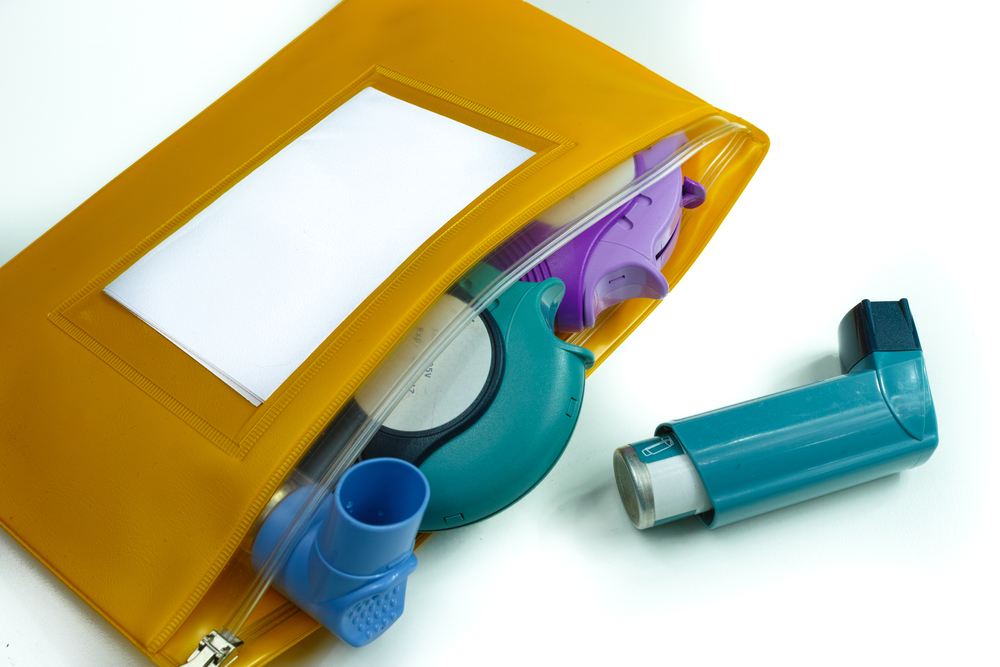Asthma is a long-term disease that has no cure. There are numerous safe and effective asthma medications for which you need a doctor’s prescription. If you are suffering from asthma and decided to buy medicines, then you need special advice on which type of asthma medication suits your condition. Because an asthma symptom varies, they can get worse or better, depending on various factors, you need to know when to adjust your doses according to your condition. Your doctor will help you create an asthma action plan that goes with your situation. Through this prescribed plan, you will be able to manage your asthma symptoms.
The goal of asthma treatment is to control the disease. Asthma is treated with two types of medicines: long-term control and quick-relief medicines. Long-term control medicines help in coming up with airway inflammation and restrain asthma symptoms.
Quick-relief medicines to deal with asthma symptoms that may flare up. Your treatment depends on the level of your asthma. The follow-up asthma cure will also be dependent on how your asthma action plan is fighting your symptoms and preventing asthma attacks.

Also Read: Acanthamoeba Keratitis- Causes and Symptoms
Medicines for Asthma Treatment
The types and doses of asthma medications you need depend on your age, your symptoms, the severity of your asthma and medication side effects. Asthma medications can be consumed in the form of pills, but generally, are taken using an inhaler. Here is a list of medicines to control asthma:
- Long-acting Beta Adrenergic- These bronchodilator medications open airways and reduce swelling. They are used regularly to control moderate to severe asthma. Although they’re effective, they’ve been linked to severe asthma attacks.
- Oral Steroids– Inhaled steroids are the mainstay treatment for controlling asthma. The use of inhaled steroids leads to better asthma control, fewer symptoms and flare-ups and reduced need for hospitalization. They are combating asthma symptoms during an attack but are slow acting and can take several hours to take effect. Dosages of inhaled steroids in asthma inhalers It is required to be taken daily for best results. Some improvement in asthma symptoms can be seen in 1 to 3 weeks after starting its routine consumption.
- Xopenex– It is a short-acting bronchodilator that is a muscle relaxing in the airways and helps increase air flow to the lungs. When it is inhaled, treats or prevents bronchospasm in people with reversible obstructive airway disease. You should not use Xopenex if you are allergic to levalbuterol or albuterol.
- Albuterol–It is important to keep the Albuterol on hand at all times. Before running out of medicines you need to get the medicines refilled. Keep using all of your other medications as prescribed by your doctor. Its side effects include back pain, body aches, dizziness, nausea, diarrhea, upset stomach, sore throat, sinus pain, and stuffy runny nose.
- Inhaled Corticosteroids– It treats inflammation in the airway, and only very small amounts of the medicine are absorbed into the body. So the medicines don’t cause any serious side effects, like weak bones. These are the most effective medications for long-term control of asthma. When taken consistently, it improves lung function, improves symptoms, and reduce asthma attacks and admissions to the hospital for asthma. Its side effects are the sore mouth, sore throat, or hoarseness, cough, and spasms of the large airways, Fungus infection in the mouth, and very slight reduction in growth, decreased bone thickness in adults, clouding of the lens of the eye or High blood pressure in the eye or fluid build-up in the eye.
- Leukotriene Modifiers– It is an inflammatory chemical that the body releases after coming in contact with an allergen or allergy, these chemicals are essential for controlling allergies and asthma. It works by blocking the action of leukotrienes, i.e., one of the causes of the inflammation and nasal congestion that are associated with allergies. For those with allergies and asthma, leukotriene modifiers help keep bronchial tubes, airways to your lungs, from constricting.
- Immunomodulator- This immunomodulator is appropriate for moderate persistent or severe persistent asthma patients who are positive to the skin test or other blood test indicating an allergy to a known asthma trigger such as dust mites, dogs, and symptoms that are inadequately controlled with inhaled corticosteroids. Moreover, it is associated with life-threatening and fatal meningococcal infections. And hence, the drug is restricted and should be prescribed by doctors only.
- Combination inhalers:Some inhaled medication for asthma carries both a bronchodilator and a corticosteroid. These may include:
- Budesonide and Formoterol
- Fluticasone and Vilanterol
- Budesonide and Formoterol
- Fluticasone and salmeterol
- Theophylline:It is supplied in the form of a pill to treat asthma. It works to relax the airways and decreases the lung’s response to irritants. The medicine is extremely effective in preventing nighttime symptoms.
- Amoxicillin–It contains penicillin antibiotic and a mucolytic It is useful in treating upper and lower respiratory tract infections.
Also Read: What You Need To Know About Fatty Liver Diseases!
Your asthma medications are the foundation of good asthma care. So take care that you never run out of asthma medication. Make sure you understand and can follow your asthma treatment plan. Wash your hands before you take asthma drugs. Tell your doctor about any other medications you take as some drugs don’t work well when you take them together and work according to his recommendations.




